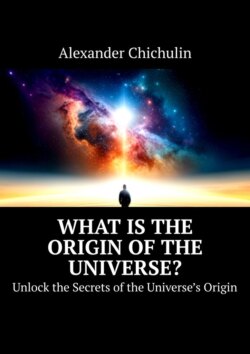Читать книгу What is the origin of the universe? Unlock the Secrets of the Universe’s Origin - - Страница 3
1. Ancient Cosmologies
ОглавлениеIn this chapter, we will explore the cosmologies of ancient civilizations, such as the Greeks, Egyptians, Indians, and Chinese. We will discuss their myths and creation stories, which often served to explain the origins of the universe and the role of gods in the natural world.
We will also examine the scientific approaches of ancient cultures, such as the work of the Greek philosopher Aristotle and the Indian astronomer Aryabhata. We will see how these early attempts to understand the universe paved the way for modern cosmology.
Furthermore, we will look at the similarities and differences between ancient cosmologies and modern scientific theories, including the Big Bang theory. We will discuss the importance of studying ancient cosmologies, not only as a window into the past but also as a way of understanding the human quest for knowledge and meaning.
– Creation myths from different cultures
In this chapter, we will delve deeper into the creation myths from various cultures, including the ancient Greeks, Egyptians, Norse, and Aboriginal Australians. We will explore the common themes and motifs that run through these stories, such as the role of gods, the creation of the world and humanity, and the relationship between humans and the natural world.
We will also discuss the ways in which these myths have influenced culture and society, from art and literature to religion and philosophy. We will see how these stories offer insight into the human experience, revealing our fears, hopes, and aspirations.
Finally, we will examine the relationship between creation myths and modern cosmology, exploring how scientific theories and religious beliefs intersect and inform each other. We will discuss the ongoing debate about the compatibility of science and religion and the importance of understanding both in our quest to understand the universe’s origin.
– Greek, Indian, Chinese, and other ancient cosmologies
In this chapter, we will focus on the cosmologies of specific ancient civilizations, including the Greeks, Indians, Chinese, and others. We will explore their understanding of the universe, including their ideas about the nature of matter, the structure of the cosmos, and the role of gods and humans in the natural world.
We will also discuss the scientific and philosophical contributions of these cultures, such as the work of Pythagoras and Plato in Greece, the Vedic cosmology in India, and the yin and yang theory in China. We will see how these early attempts to understand the universe influenced later scientific and philosophical developments.
Furthermore, we will examine the similarities and differences between these ancient cosmologies and modern scientific theories. We will discuss the challenges and limitations of comparing ancient and modern perspectives and the importance of understanding the historical and cultural context in which these ideas developed.
– Early scientific attempts to understand the universe
In this chapter, we will focus on the early scientific attempts to understand the universe, from the work of the ancient Greeks to the Renaissance. We will explore the contributions of notable figures such as Aristotle, Ptolemy, Copernicus, and Galileo, and their impact on our understanding of the cosmos.
We will also discuss the development of astronomy and the scientific method, including the role of observation, experimentation, and theory in scientific discovery. We will see how early scientists used technology such as telescopes and astronomical instruments to study the universe and make groundbreaking discoveries.
Furthermore, we will examine the ways in which early scientific ideas about the universe intersected with religious and philosophical beliefs. We will discuss the debates about the nature of the universe and the role of science in society, including the challenges to established beliefs and the resistance to new ideas.
